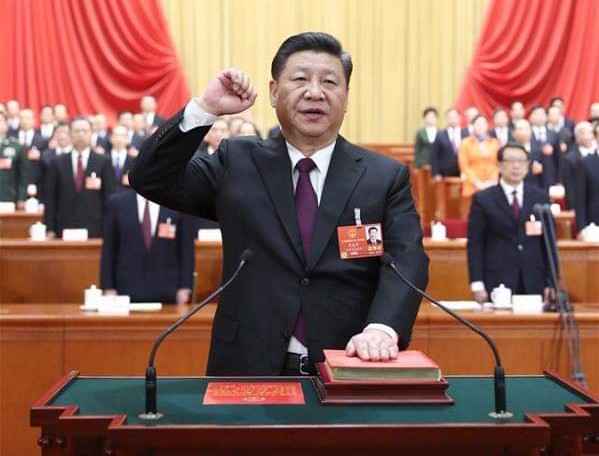A contentious draft law proposing to ban clothing and symbols that are deemed “detrimental to the spirit of Chinese people” has ignited a debate in China. While the potential penalties include fines and imprisonment, the proposal lacks clarity regarding what constitutes a violation.
This draft law is part of a series of proposed changes to China’s public security laws, marking the first major reforms in decades. However, it has already garnered significant backlash from the public, with many online users criticizing it as excessive and absurd.
The controversial provisions of the proposed law suggest that individuals who wear or compel others to wear clothing and symbols that “undermine the spirit or hurt the feelings of the Chinese nation” could face detention for up to 15 days and fines of up to 5,000 yuan ($680; £550). Similar punishments could be applied to those who create or disseminate articles or speech that are deemed to have the same effect.
The proposed legal changes also forbid any acts of “insulting, slandering, or otherwise infringing upon the names of local heroes and martyrs,” as well as vandalism of their memorial statues.
Critics have raised concerns about the vague wording of the law, questioning how law enforcement would determine when the nation’s “feelings” are “hurt.” Some have even wondered if wearing Western clothing like a suit and tie or practicing Marxism in China might be considered offenses under this law.
Legal experts in the country have also expressed reservations, fearing that the lack of clarity in the law could lead to abuses of power. Professor Zhao Hong of the Chinese University of Political Science and Law argued that this ambiguity might result in infringements on personal rights, citing a case from the previous year where a woman was detained for wearing a Japanese kimono.
These incidents, along with others, have raised questions about the law’s potential impact on personal freedoms and cultural expression. Critics have called for greater transparency and specificity in the legislation to prevent overreach by law enforcement.
This draft law is just one example of how Chinese President Xi Jinping has been redefining the concept of a model Chinese citizen since assuming leadership in 2012. In 2019, the Chinese Communist Party issued “morality guidelines” promoting behaviors such as politeness, environmentally responsible travel, and unwavering support for Mr. Xi and the party.
